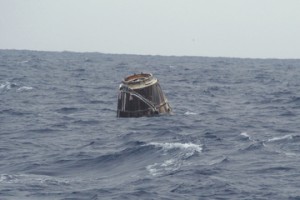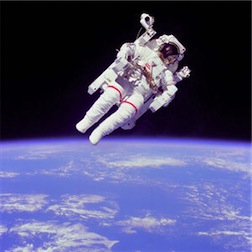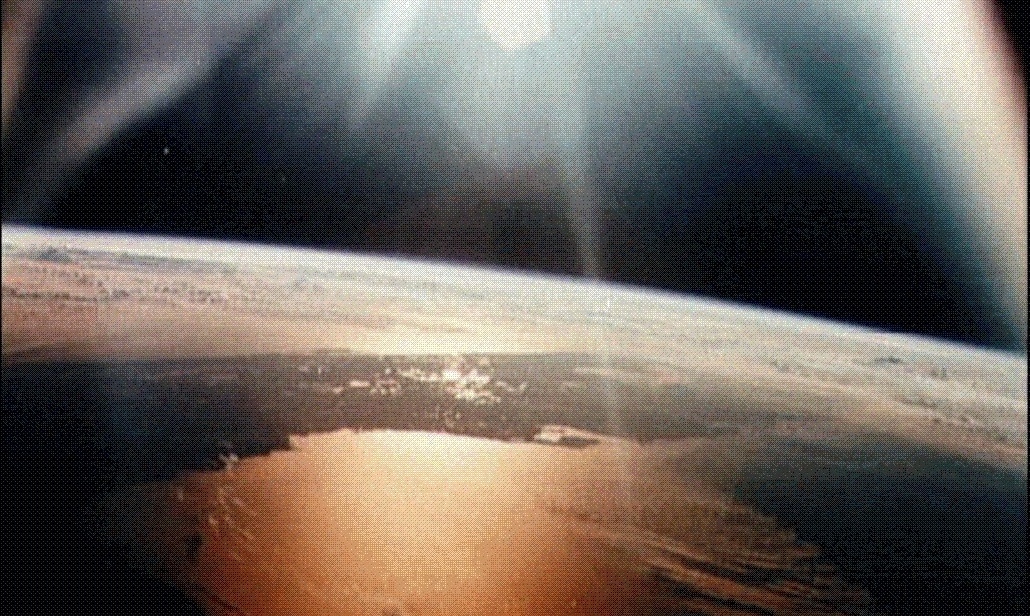As the Dragon capsule splashes down in the Pacific Ocean some thoughts on the future of human space flight. When John F. Kennedy began the US race to the moon back in the sixties it was a response to Soviet advancements in space technology that put first a monkey, and then a man in space. This response can be seen as a pure classic military maneuver in taking the high ground. If the Russians were going to be in orbit the US was going to the moon. It was something everyone could understand and it didn’t have to be papered over with science experiments from school children.
 Since then the US has shown that its economic vision produced superior results than the Soviet model, and since the Soviet fall, NASA has used the ‘International’ space station as a sort of welfare program to keep the Russians close. This program has sustained many industries public and private for many years, but, with no specific goal in mind NASA had begun to be seen as a waste of taxpayer dollars that could be going to some other special interest group. George W. Bush’s last gasp Martian program was dismantled by President Obama as soon as he was able to do so. It is perhaps the one current administration program that we are totally on board with.
Since then the US has shown that its economic vision produced superior results than the Soviet model, and since the Soviet fall, NASA has used the ‘International’ space station as a sort of welfare program to keep the Russians close. This program has sustained many industries public and private for many years, but, with no specific goal in mind NASA had begun to be seen as a waste of taxpayer dollars that could be going to some other special interest group. George W. Bush’s last gasp Martian program was dismantled by President Obama as soon as he was able to do so. It is perhaps the one current administration program that we are totally on board with.
As an emergency military program NASA made sense. As a public relations and welfare program- not so much. The economic engine of the US that paid for the space program had other benefits as well, one of which was to make people rich. Many of these rich people were visionaries that saw something like the Internet and added value to it. Elon Musk helped create PayPal, a very useful way to send and receive money over the Internet. This was not an easy task by any means if you think about it for a second.
He also helped create the Tesla electric motor car company. At a time when the state of the art was a failed General Motors (should we now be calling it Government Motors?) offering called the EV-1, this again was no easy task. The Dragon capsule that we mentioned up top is another Elon Musk vision. As our banks were failing to realize the future of the internet and the major automobile manufacturers were failing to offer an alternative energy vehicle so was NASA failing to offer a viable vision for the future of space.
(should we now be calling it Government Motors?) offering called the EV-1, this again was no easy task. The Dragon capsule that we mentioned up top is another Elon Musk vision. As our banks were failing to realize the future of the internet and the major automobile manufacturers were failing to offer an alternative energy vehicle so was NASA failing to offer a viable vision for the future of space.
Musk is not alone. As Bill Gates races to give away his money before he dies the other half of the original Microsoft team is also looking to space. Paul Allen has begun construction on the largest airplane ever in order to launch a space vehicle of his own. Sir Richard Branson has created Virgin Galactic based on technology developed by legendary aerospace engineer Burt Rutan. (Rutan is also involved in Allen’s project.)
Robert Bigelow, the founder of Budget Suites, is building modular space dwellings. Filmmaker James Cameron, Google co-founder Larry Page and others have launched Planetary Resources- a company devoted to developing technology to mine near earth asteroids. The point being that the vast majority of new space programs are happening in the private sector- as we believe they should be.
As the worldwide financial disaster unfolds around us and as the bills for profligate spending come due governments are hard pressed to fund prestige projects with no purpose in mind. But there is a market if the governments not only allow it but encourage it. To that end we applaud the government systems that reward entrepreneurship and keep their fiscal houses in order. Though that is becoming a more rare thing these days than is comfortable.

